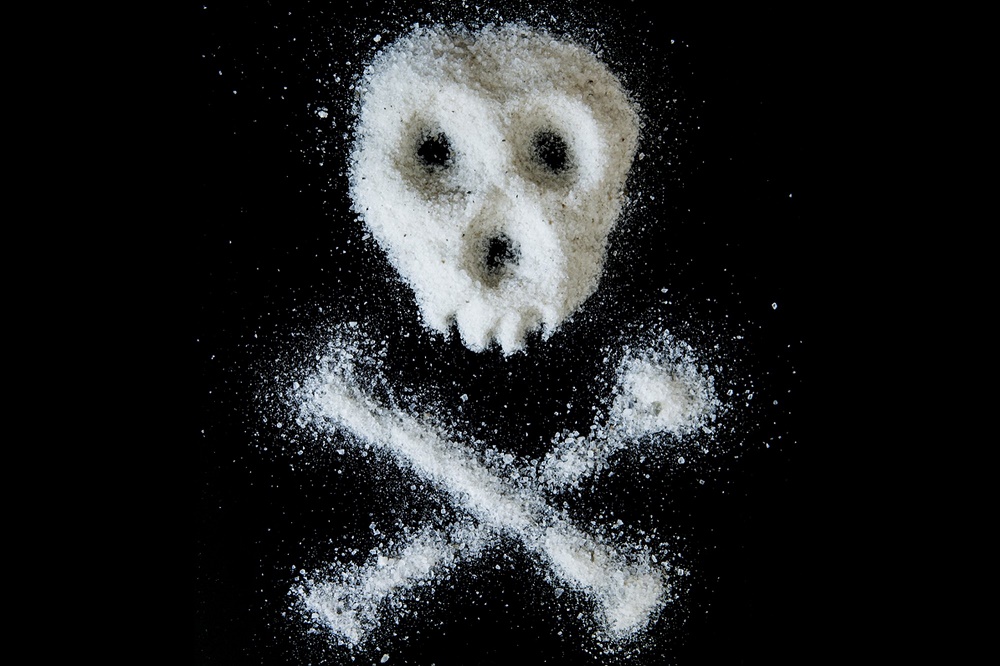Despite your good intentions, there’s probably more salt in your diet than you think. The average American eats 10‐12 grams of salt every day. Almost 80% of this comes from processed foods – even those considered healthy. Why is table salt so toxic to your body?
Blood Pressure: The amount of salt you eat has a direct effect on your blood pressure. Salt makes your body hold on to water. If you eat too much salt, the extra water stored in your body raises your blood pressure. So, the more salt you eat, the higher your blood pressure. The higher your blood pressure is, the greater the strain on your heart, arteries, kidneys and brain. This can lead to heart attacks, strokes, dementia, and kidney disease.
Kidneys: Your body removes unwanted fluid by filtering your blood through your kidneys. Here any extra fluid is sucked out and put into your bladder to be removed as urine. To do this, your kidneys use osmosis to draw the extra water out of your blood. This process uses a delicate balance of sodium and potassium to pull the water across a wall of cells from the bloodstream into a collecting channel that leads to the bladder. Eating salt raises the amount of sodium in your bloodstream and wrecks the delicate balance, reducing the ability of your kidneys to remove the water. The result is a higher blood pressure due to the extra fluid and extra strain on the delicate blood vessels leading to the kidneys. Over time, this extra strain can damage the kidneys ‐ known as kidney disease. This reduces their ability to filter out unwanted and toxic waste products, which then start to build up in the body.
If kidney disease is left untreated and the blood pressure isn’t lowered, the damage can lead to kidney failure. This is when the kidneys are no longer able to filter the blood and the body slowly becomes poisoned by its own toxic waste products. If you have high blood pressure and are being treated with a diuretic medication, this makes the kidneys remove more fluid from the bloodstream. Because the sodium in salt counteracts this effect, reducing your salt intake will make your blood pressure medicine more effective.
Arteries: The extra blood pressure caused by eating too much salt puts extra strain on the insides of your arteries. To cope with the extra strain, the tiny muscles in the artery walls become stronger and thicker. Yet this only makes the space inside the arteries smaller and raises your blood pressure even higher. This cycle of increasing blood pressure (which occurs slowly over a number of years) can ultimately lead to the arteries bursting or becoming so narrow that they then clog up entirely. When this happens, the organs of the body that were receiving the blood from the arteries become starved of the oxygen and nutrients they need. This can result in the organs being damaged and can be fatal.
Heart: The raised blood pressure caused by eating too much salt may damage the arteries leading to the heart. At first, it may cause a slight reduction in the amount of blood reaching the heart. This may lead to angina (sharp pains in the chest when being active). With this condition the cells in the heart don’t work as well as they should because they are not receiving enough oxygen and nutrients. However, lowering blood pressure may help to alleviate some of the problems and reduce the risk of greater damage. If you continue to eat too much salt then, over time, the damage caused by the extra blood pressure may become so severe that the arteries burst or become completely clogged. If this happens, then the part of the heart that was receiving the blood no longer gets the oxygen and nutrients it needs and dies. The result is a heart attack.
Brain: The raised blood pressure caused by eating too much salt may damage the arteries leading to the brain. At first, it may cause a slight reduction in the amount of blood reaching the brain. This may lead to dementia (known as vascular dementia). With this condition the cells in the brain don’t work as well as they should because they are not receiving enough oxygen and nutrients. However, lowering blood pressure may help to alleviate some of the problems and reduce the risk of greater damage. If you continue to eat too much salt then, over time, the damage caused by the extra blood pressure may become so severe that the arteries burst or become completely clogged. If this happens, then the part of the brain that was receiving the blood no longer gets the oxygen and nutrients it needs and dies. The result is a stroke, where you lose the ability to do the things that part of the brain used to control.
Easy steps you can take to reduce your salt:
1. Stop adding salt to your cooking
2. Avoid processed foods
3. Ask for less salt when dining out

